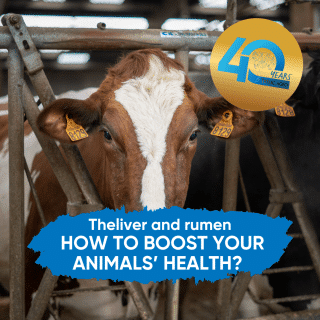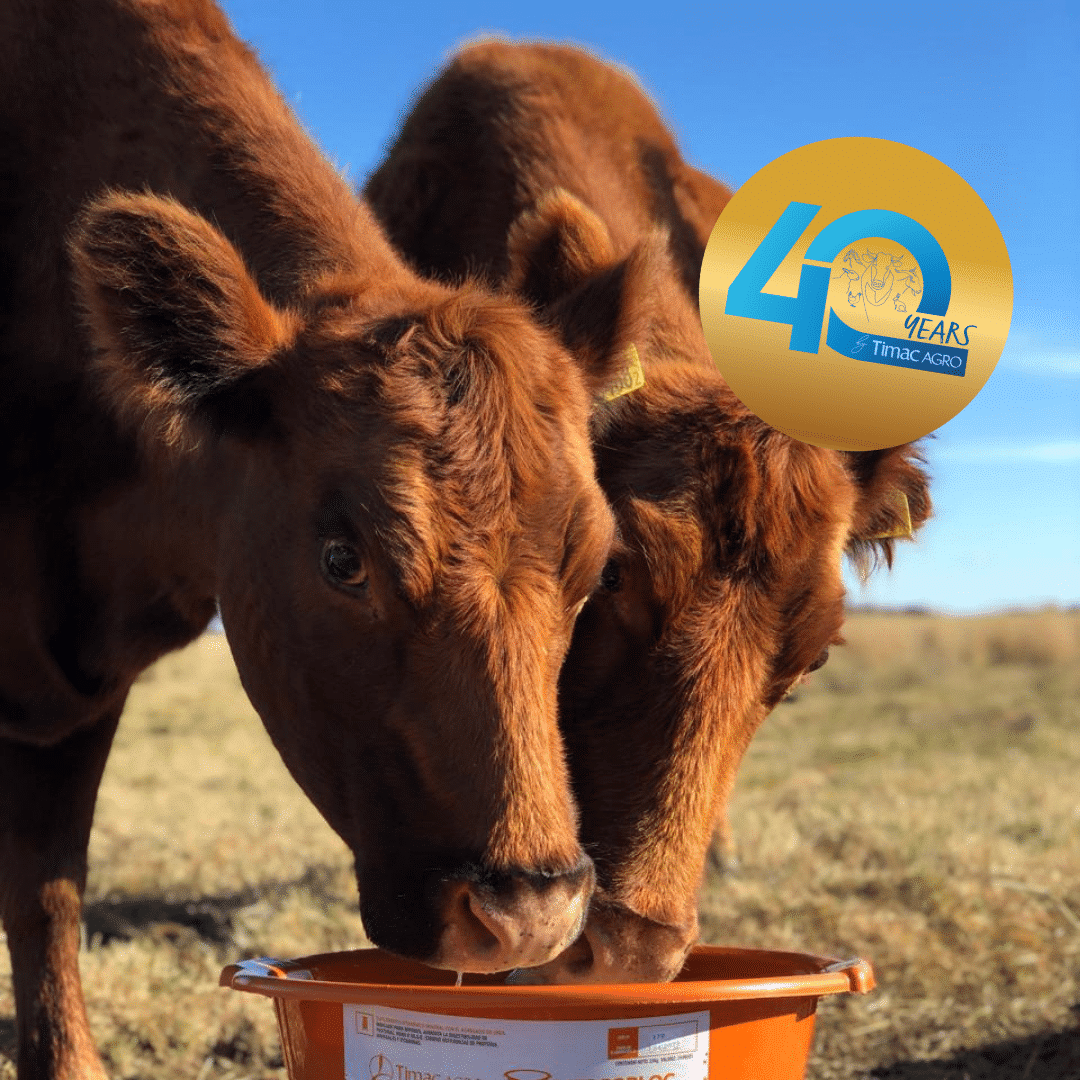Liver and rumen: optimizing animal health and performance
What impact on yields?
- The liver, the central organ of metabolism
The liver plays a key role in animal metabolism: it stores, transforms, and distributes nutrients while contributing to detoxification and immune defense.
A healthy liver is essential for the body to function properly.
However, certain factors can disrupt its balance: overly rapid dietary changes, insufficient hydration, or nutritional imbalances. These disruptions can lead to a buildup of toxins, a slowdown in metabolism, and decreased performance.
When the liver is tired, the whole body suffers.
A poorly functioning liver directly impacts the animal’s health and productivity. The most common signs are:
- loss of appetite,
- decreased milk production,
- poor nutrient absorption,
- weakened immune system.
Without a healthy liver, it becomes difficult to maintain the overall health and performance of the herd.
Restoring balance: supporting the liver to optimize performance
- Maintaining a healthy liver requires a comprehensive approach:
- Adapting the feed ration to relieve the metabolism,
- Ensuring energy requirements are met during transition periods,
Promoting detoxification functions and stimulating appetite.
A balanced liver allows for better nutrient assimilation, strengthens immunity, and contributes to optimal zootechnical performance.
The role of the rumen: partner of the liver
The rumen is the engine of digestion in ruminants. Efficient fermentation ensures the production of essential nutrients and limits the formation of toxic compounds.
A well-functioning rumen directly supports the liver by reducing its metabolic load and improving nutrient availability.

- Maintaining a healthy liver requires a comprehensive approach:
- Adapting the feed ration to relieve the metabolism,
- Ensuring energy requirements are met during transition periods,
Promoting detoxification functions and stimulating appetite.
A balanced liver allows for better nutrient assimilation, strengthens immunity, and contributes to optimal zootechnical performance.
The role of the rumen: partner of the liver
The rumen is the engine of digestion in ruminants. Efficient fermentation ensures the production of essential nutrients and limits the formation of toxic compounds.
A well-functioning rumen directly supports the liver by reducing its metabolic load and improving nutrient availability.


